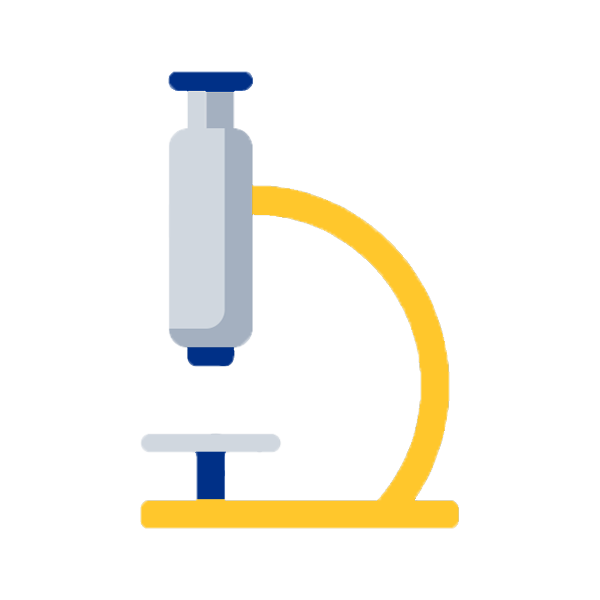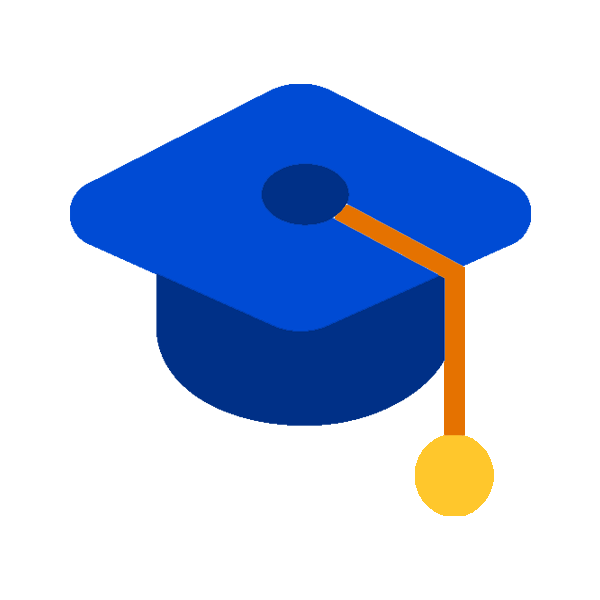The Alzheimer Society Research Program
Are you a researcher currently funded by the Alzheimer Society Research Program, or interested in applying? Get all the information and resources you need here.
In 2025, we funded more than $5.1 million to 37 projects across Canada. This was made possible through the generous support of donors and funding partners such as, Brain Canada Foundation, Canadian Institutes of Health Research – Institute of Aging (CIHR-IA), Research Manitoba, The Saskatchewan Health Research Foundation and Fonds de recherche du Québec.
Find out how to apply to the latest Research Competition and get guidelines and key dates for applying on this page.
Funding information

Doctoral Award
An opportunity for promising individuals, pursuing a PhD, to begin the process of becoming future independent investigators in the field of Alzheimer's disease and other dementias.
- Amount: $129,000
- Duration: 3 years
- Eligibility: Within 18 months of starting PhD program; within 36 months of starting PhD program if it is a direct entry from bachelor’s to PhD.

Postdoctoral Award
Graduates with a PhD or MD who wish to gain additional research experience within an established research environment.
- Amount: $150,000
- Duration: 2 years
- Eligibility: Graduates with a PhD or MD; Within 18 months after obtaining a PhD—can be extended if there are exceptional circumstances.

New Investigator Operating Grant
Designed to help launch the careers of outstanding researchers who are within the first 6 years of their initial academic appointment.
- Amount: $200,000
- Duration: Up to 4 years
- Eligibility: Within the first 6 years of initial faculty position

Proof of Concept Grant
Designed to fund established researchers in conducting innovative, high-risk and high-reward approaches to dementia research. Please do not submit existing hypotheses.
- Amount: $100,000
- Duration: Up to 3 years
- Eligibility: Must hold a faculty position with a Canadian university or affiliated institution – please note only those invited to complete full Proof of Concept (PoC) Grant application following the pre-screen of their PoC Letter of Intent (LOI) are eligible to submit a proposal to the ASRP competition.
Tips for Doctoral and Postdoctoral Award Applications
The Alzheimer Society Research Program (ASRP) makes funding decisions based on excellence, as assessed by peer review. Your award application will be evaluated on aspects including the proposed research and training environment, as well as your potential as a future scientist.
The following suggestions are meant to help you translate your research idea into a successful award application. They are not a substitute for the application guidelines, nor are they the criteria by which your application will be evaluated.
- 1. Address all the important points of a research proposal
-
The ASRP application form specifies the general requirements for a research proposal (e.g., objectives, rationale, methods), but reviewers will sometimes identify specific aspects of a research proposal as incomplete or missing.
These perceived gaps can negatively influence your application’s review, but will also depend on your research discipline; for example, the need for sample size calculations or specifying strains of mice is dictated by your research.
To ensure you have a complete proposal, get the input of your supervisor (see point two below). It can also be useful to consult discipline-specific journals, which often have reviewer checklists, sections of which may be helpful to compare against your own proposal.
- 2. Involve your supervisor
-
Along with providing a great reference letter (signed and on letterhead), make sure your supervisor reads your application and provides feedback.
Your supervisor has years of research and grant-writing experience, so his/her input into your application (or lack thereof) can be obvious to a reviewer; the degree to which your supervisor was involved in your application can be interpreted as a reflection of the time and energy he/she will have for you during your training.
- 3. Do not overpromise
-
This may be familiar advice, but you may still hear it in your application review: Oone well-rationalized hypothesis is generally better than a series of vague research questions. Reviewers need to be convinced you can complete the work you have promised in your application, and within the timeframe you have specified, so keep your research plans focused.
- 4. Establish feasibility
-
As noted above, reviewers need to be convinced you can carry out the work you have promised to do, so wherever possible, remove opportunity for doubt. For example, if you are accessing a clinical sample, provide a letter of support from the referring clinician, or if you are using someone else’s data or equipment, provide a letter of support assuring access.
- 5. Acknowledge the risks
-
There are risks to any research project - your experiments could fail or your theories could be disproven. Identify important risks to the research you have proposed, and describe how you would try to mitigate them. Addressing potential pitfalls, and demonstrating they will not take you completely off track, helps convince the reviewer that you will be able to complete your training program.
- 6. Explain any nuances of your program
-
Some doctoral programs send you straight to the lab, project in hand. Others require years of coursework and comprehensive exams before thesis work can begin. If your program is more like the latter, it could have important implications for your research proposal. Be sure to explain your program’s timelines in the application.
- 7. Do not make the reviewer’s job more difficult
-
Researchers choose to give back to the Society by participating in peer review panels. Keep in mind that they are unpaid and must take time away from their own work to read and review your application.
- Do what you can to make the reviewer’s job easier.
- Take responsibility for conveying your ideas clearly and concisely; an application that is poorly organized - or written with spelling mistakes and grammatical errors - can undermine a great research idea
- Proofread again and again then have others do the same.
- Take advantage of any writing or editing courses that your institution offers.
- Do not expect reviewers to look up each one of your references.
Writing papers and grant applications is a reality of academic work - the sooner you develop these skills, the better.
- 8. Consider the funding agency
-
Every funding agency is different, including the time and resources they can invest into the peer review process. Read the ASRP guidelines carefully, and do not expect guidelines from other funding agencies to apply. If you do have questions, contact us for clarification.
- 9. Persevere
-
Doctoral and Postdoctoral funding is good for your bank account, good for your career and good for your morale. For these reasons (and more), it is worth taking the time and effort to put together the best possible proposal. If you are still eligible, try again if you were unsuccessful the first time – this is how many projects get funded and papers get published.
Resource
Inclusive Research Guidebook: Partnering with People Living With Dementia from Ethno-racial Communities. This guidebook was created to support researchers and research teams interested in pursuing research involving individuals impacted by dementia who are members of ethno-racial communities. It has benefited greatly from co-design: the meaningful engagement of partners, including people living with dementia from diverse ethno-racial communities, in the development of resources to increase their quality, relevance, and impact. Murray Alzheimer Research and Education Program, Schlegel-UW Research Institute for Aging.
Frequently asked questions
Submissions
- How do I submit an application to the Alzheimer Society Research Program?
-
Your application is to be submitted via the online portal (Apply for funding). Access to the portal will be made available in September at the launch of the competition. If you applied online to the ASRP last year, log in with your previous ID and password. The system has autosaved the information you previously submitted and you will not have to fill out the entire application again.
All applications are to be submitted online and in no circumstance will hard copies of applications be accepted.
- Can I submit more than one application per competition?
-
No. If you are listed as a Principal Investigator (PI) or a Co-Applicant, you are not eligible to apply for another grant. If you are listed as a collaborator on a grant application or a supervisor on a student’s application, you may submit your own application.
- Do you accept submissions from international applicants?
-
Yes, but the research must be conducted entirely in a Canadian university or affiliated institution. In other words, the investigator does not have to be a Canadian citizen, but the research must be done on Canadian soil.
- How does the Alzheimer Society decide who gets funded?
-
All applications that meet the eligibility criteria are reviewed by two panels of experts: the Quality of Life panel and the Biomedical panel. Each proposal is scored on its novelty, scientific merit and relevance to Alzheimer’s disease and other dementias. Immediately following the meetings, the Alzheimer Society of Canada compiles all of the scores and creates a rank order of all applications. The results are brought forth to the Research Policy Committee and the final recipients are selected based on the budget available. The recommendations are then presented to the Board of Directors for approval.
- Does the ASRP release scores?
-
Yes. Shortly following the panel meetings, you will receive an email notification with your score and rank. This will give you a sense of where you stand compared to your peers and if you scored above or below the fundable range (those who score below 3.5 will not be funded). Funding notifications will be sent out at a later time, usually in early spring. Please ensure that the Society has your most current email address on file and notify us of any changes immediately.
Awards
- Do I need to submit a university transcript for a Postdoctoral Award?
-
Undergraduate and Graduate transcripts are only required for doctoral awards. Hard copies are not required. Official electronic copies must be uploaded onto the online application system by the competition deadline. It is the responsibility of the applicant to monitor the status of their application and to notify us immediately if the transcripts are delayed.
- Can my supervisor also submit a letter of reference?
-
No. Your supervisor is responsible for submitting the Supervisor’s Statement only. The two reference letters must be filled out by additional referees, who have supervised you wholly or in part, or are very familiar with your previous work. Your referees do not need to upload their Common CVs.
Grants
- Can I be listed as a Principal Investigator/Co-Applicant on one application, and as a collaborator on another?
-
Yes, you can be listed as a Principal Investigator OR Co-Applicant on one application and as a collaborator on multiple applications. If you are listed as a PI on an application, you cannot be listed as a Co-Applicant on another and vice versa.
- My student is applying for an award. Am I allowed to submit a grant application as a PI or Co-Applicant?
-
Yes. A supervisor may sponsor one doctoral applicant and one postdoctoral applicant per competition, regardless of whether they submit an application.
- I would like to include a collaborator who is not based in a Canadian institution. Is this possible?
-
Grants are intended to support researchers based in a Canadian university or affiliated institution. This policy also applies to all co-investigators and collaborators listed on the application. A researcher based outside of Canada would be eligible as a co-investigator or collaborator only if his/her participation in the project will occur entirely in a Canadian university or affiliated institution.
- I am currently being funded by the ASRP, can I submit an application in this competition?
-
You can submit an application only if the funding you are currently receiving will expire by the time you plan to start your next project. The ASRP does not accept applications that request a renewal or continuation of a preceding grant so the application will have to be for a different project.
Miscellaneous
- I have submitted my application but have new information that I would like to add to my CV. Can I update my application?
-
Once the application is submitted, additional documents or requests to update information will not be accepted or honoured.
- Are there any exceptions to the submission deadline?
-
No. The application and all supporting documents must be submitted online and to the Research Department by the competition deadline. Incomplete applications will not be processed.
- Are there research positions offered within the Society?
-
The Alzheimer Society of Canada does not conduct in-house research and no research positions are available within the Society.
Who do I contact for more questions?
For more information on the Alzheimer Society Research Program, contact:
Research Department
Alzheimer Society of Canada
20 Eglinton Ave. W., Floor 1600
Toronto, ON M4R 1K8
Canada
Phone: (416) 847-2968, toll free 1-800-616-8816 ext. 2968
Fax: (416) 322-6656
Email: [email protected]
